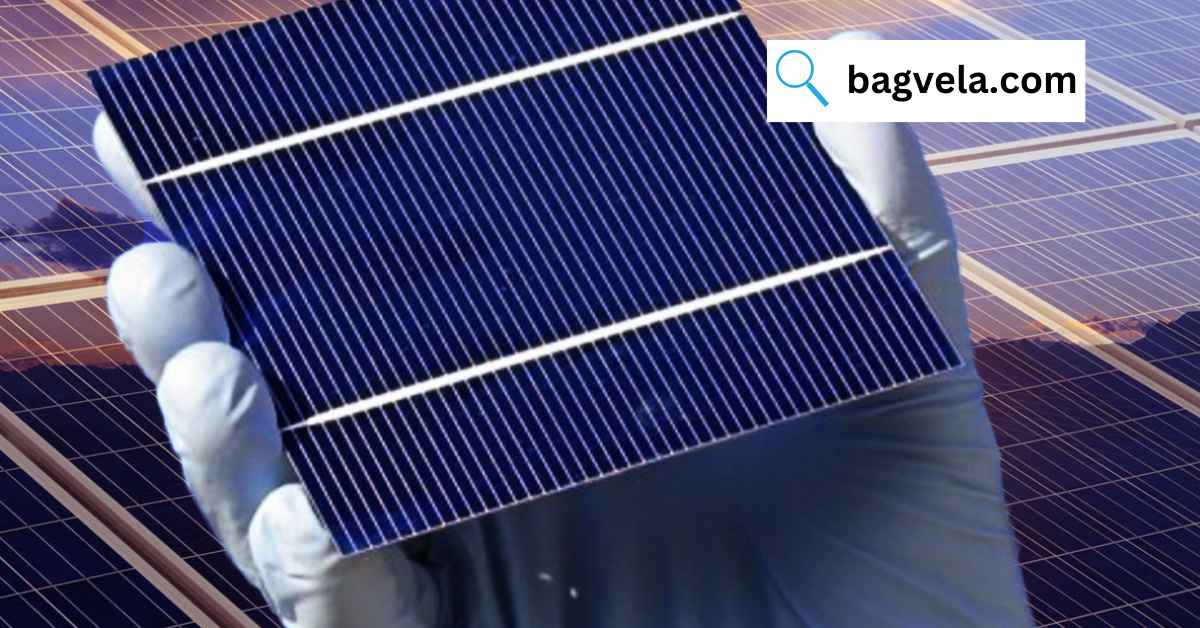
What Materials Are Used To Make Solar Panels?
Solar panels provide clean, renewable energy to residential and commercial properties. They are primarily made of photovoltaic cells, which convert light into electrical currents.
A reputable solar company will advise you on the most suitable solar panel system materials for your home or business. Here is more information about some of the most common materials used to make solar panels:
Silicon-based Photovoltaic Cells
Solar photovoltaic cell panels have evolved, with silicon being a widely used material due to its crystalline structure. These panels are easy to install, making them suitable for residential and commercial use.
They offer long-term savings on energy costs over traditional methods of electricity generation. Silicon solar cells come in three varieties:
1. Monocrystalline Silicon
Monocrystalline silicon solar cells are fabricated with a single crystal of pure silicon. They have the highest efficiency ratings among all types of silicon cells, attaining up to 24.4% proficiency. These cells have a consistent dark hue and curved edges.
Monocrystalline panels are efficient in low-light surroundings and necessitate less space than other solar cell types. Monocrystalline silicon is principally used to fabricate semiconductor components, such as transistors, diodes, and microchips. Its high purity and crystal formation make it suitable for these uses.
Monocrystalline and polycrystalline silicon are the two central forms of crystalline silicon in solar photovoltaics.
2. Polycrystalline Silicon
Polycrystalline silicon cells have multiple small silicon crystals fused together, resulting in lower efficiency than monocrystalline cells. They are cost-effective and suitable for applications with limited space.
Polycrystalline cells perform better in low light conditions than amorphous cells, making them ideal for remote areas or high latitudes. The mottled texture of polycrystalline cells arises from the minimal crystal boundaries present.
3. Amorphous Silicon
Amorphous silicon cells, made from non-crystalline silicon, exhibit lower efficiency than crystalline cells. They are popular for residential and commercial applications due to their thin nature and low temperature production.
These cells excel in high-light conditions, making them ideal for sun-rich areas. They can be integrated into building materials like roofs or windows.
Aluminum and Arsenic
Aluminum is an inexpensive material that acts as a good conductor of electricity while offering environmental protection for solar cells. Steel and aluminum are commonly used to construct frames for solar panels. Steel provides more rigidity and durability than aluminum but can be heavy and expensive.
Aluminum is lighter and cheaper than steel, making it an attractive choice for frame construction. A solar company may use a combination of these two materials to construct higher-efficiency solar cells, often used alongside silicon to form a heterojunction cell.
Arsenic, a chemical element, enhances the functionality of silicon crystals and helps minimize solar panel production expenses. It also boosts thermal steadiness in solar cells.
Combining materials to create an electrical field helps improve the cell’s productivity. Aluminum also offers a suitable electrical connection between the cell and other parts, permitting effective energy transfer.
Carbon Nanotubes
Carbon nanotubes (CNTs) are tiny cylindrical carbon structures, typically a few nanometers in diameter and several micrometers in length. They possess mechanical, electrical, optical, and thermal properties, making them well-suited for utilization in solar cell applications.
A solar company may use CNTs as a conductive substance in solar cell manufacturing, facilitating a connection between the back contact and the n-type layers of the cell.
CNTs also efficiently transport charge carriers, enhancing energy transfer efficiency. They serve as an effective means to reduce light reflection and increase energy absorption.
Work with a Reliable Solar Company
Solar energy is a renewable and clean power source that is beneficial and popular for businesses, homes, and various industries.
Companies and homeowners looking to switch to solar energy should consider working with a reliable and knowledgeable solar company.
Such companies have experience in photovoltaic design and installation and can help you find an efficient solar energy system. Contact a solar panel provider today to learn more about installing this energy source on your property.
You May Also Like

Supplies To Stock Your Vacation Rental With To Meet Your Guests’ Needs
October 17, 2023
The Art of Perfecting Trixie Tongue Tricks
September 22, 2023